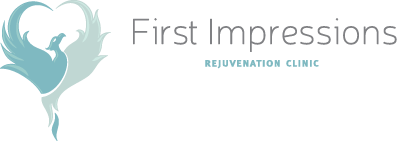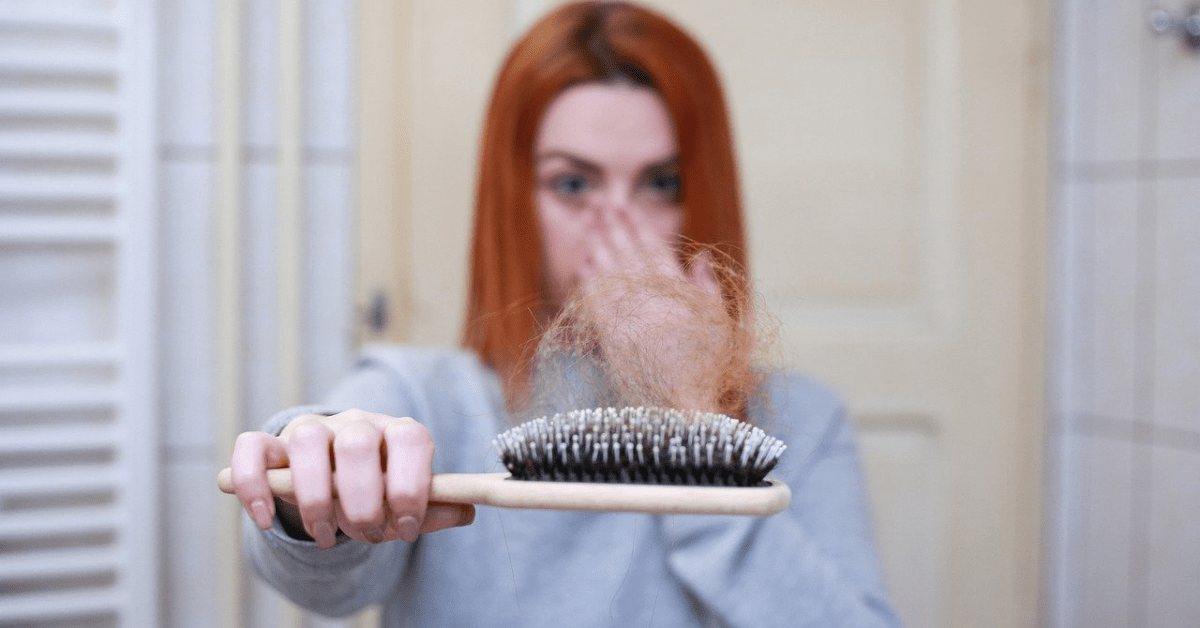We’ve all heard the phrase, “I just want to rip my hair out,” when someone is stressed, angry, or frustrated. It turns out this is a symptom of an actual medical condition, but we’ll talk about that in just a minute. We know that stress can negatively impact our lives, but does stress cause hair loss?
The short answer is yes. But do not let this revelation cause more hair loss stress. Let’s look at what is going on with our hair when we experience prolonged stress.
Examining Hair Loss Stress
There are many different hair loss reasons to consider. Hormonal changes, side effects from certain medications and supplements, radiation or chemotherapy treatment, certain medical conditions, and even nutrient deficiencies can cause hair loss. That’s right; you could experience hair loss simply because you do not have enough Vitamin A in your diet! However, the truth is that the biggest culprit of hair loss is stress.
Three medical conditions are directly related to high stress and hair loss. The first is called telogen effluvium. Our hair typically goes through three different cycles that repeat throughout our life. The first is the anagen phase (growth phase). The second is the catagen phase (transitional phase), and the third is the telogen phase (resting phase).
Telogen effluvium is associated with the telogen phase, the main symptom being increased shedding of your hair. Symptom onset is usually quite abrupt. After experiencing chronic stress or a traumatic event, your hair follicles can be pushed into the resting phase. New hair growth becomes stunted and existing hair begins to shed more quickly. You may notice the thinning of hair around the scalp. In many cases, this condition is temporary, and hair begins to regrow after stress has subsided.
If you notice your hair clumping in the shower or a large amount of hair sticking to your brush or comb, you may be suffering from telogen effluvium.
The second condition is trichotillomania. People who have this condition literally tear their hair out to cope with anxiety, depression, nervousness, or stressful situations. Affected areas include hair on the scalp, facial hair, and body hair. Trichotillomania is commonly seen in teenage girls, but certain stressful or traumatic events can trigger the condition at any age for any gender. Like telogen effluvium, this hair loss stress condition is temporary and resolves itself with treatment of emotional symptoms.
The third hair loss condition is alopecia areata, which occurs when the body’s immune system attacks your hair follicles and causes hair to fall out. In some cases, alopecia areata may only cause the hair to thin. However, it is common for sufferers to develop bald spots around the head. There are several medical and natural treatment options to combat this condition and address the stress a patient is experiencing.
How to Relieve Stress
Stress is an inevitable part of life. Positive stress can motivate us to achieve our goals and perform at our best. Negative stress, on the other hand, can be crippling and lead to depression and anxiety. The good news is that there are many self-care techniques and strategies you can try to combat stress. The less stress you face, the better and more radiant your hair will be. Here are some tactics you can try:
- Meditation is a great way to relieve stress in a pinch. Even if you find just five minutes a day to focus on your breath, you can slow your heart rate and gently calm racing thoughts. You can find many guided meditations on the internet or try out a few apps to find the right tools that fit your lifestyle.
- Yoga is not just for fitness; it is also a great form of movement meditation. Yoga challenges you to focus on the present moment and practice the yoga poses with intentionality, drawing your focus away from stressful life events and giving your body a much-needed break. Also, a yoga practice can be adapted for all levels. If you need to ease into yoga, a chair practice may suit you. If you’d prefer a more advanced practice, you might want to try Bikram (hot yoga) or other types of challenging yoga.
- Aromatherapy has so many benefits that can help reduce the stress in your life. Certain scents such as peppermint, lemon, eucalyptus, and lavender have mood-boosting effects. You can practice aromatherapy by using scented candles or essential oils with a diffuser. On the go? Consider purchasing a few diffuser pens that have cotton wands saturated with your favorite essential oil. When you need a calming moment, grab your pen and breathe deeply.
- Journaling helps you get all of your anxieties down on paper. Sometimes when we’re so stressed, we repeat our worries in our head like an endless cycle. When we put our worries onto the page, it helps give a sense of clarity to the situation at hand. If writing down your stressors feels like it will only add to the stress in your life, consider gratitude journaling. Spend a few moments each day making a list of the things you are grateful for and reflect on that list when you’re feeling stressed or anxious.
- Acupuncture has been a tool for health and wellness for many years. The precise placement of needles on pressure points throughout the body promotes an emotional release and can relieve stress. Plus, acupuncture is a versatile treatment option and a targeted therapy.
- Gentle exercise. Moving your body is excellent for an endorphin boost, but sometimes we’re too stressed to get a good workout going. Instead, opt for gentle exercise. Take a mindful walk around the block, practice some stretches, or go for a bike ride at a leisurely pace. A bit of movement can go a long way.
- Mindful breathing is another tool to add to your stress-reduction toolkit. Like meditation, mindful breathing exercises help ground you to the present moment, giving your mind a break from anxiety, even just for a few minutes.
- Socializing with friends and loved ones can reduce stress as well. A hug, a great conversation, and a recreational day with friends are all wonderful ways to combat the stress in your life and enjoy the relationships you have.
- Daily affirmations can help you set your intention for the day ahead. You can write an affirmation before going to bed and recite the positive affirmation when you wake up in the morning. Whenever you are feeling stressed or anxious, go back to your affirmation and repeat it several times.
7 Tips to Save Your Hair from Stress
If you’ve experienced hair loss stress, we have seven tips to help you save your hair and put the stress and hair loss behind you once and for all.
- Get regular scalp massages. Many spas and massage therapy centers offer scalp massages as part of their service packages. A scalp massage stimulates your hair follicles while relieving stress, getting you past the “resting phase” and back into the “growth phase” of the hair cycle.
- Examine your diet. Are you getting enough proper nutrients to support your hair’s growth? A healthy hair diet should consist of foods high in Vitamin A, protein, vegetables, and herbs. Some common foods with high Vitamin A content include sweet potatoes, spinach, and sweet peppers.
- Take supplements. To increase your nutrient intake for healthy hair growth, talk with your doctor about what supplements may be right for you. Common supplements include multivitamins, biotin, ginseng, and Vitamin D.
- Consider a hair restoration treatment. At First Impressions Clinic, we offer a platelet-rich plasma hair restoration treatment to combat baldness and hair loss. This treatment uses platelet-rich plasma from your blood to repair damaged hair follicles, resulting in increased hair growth and thickness. Multiple treatments are necessary for the best outcomes.
- Make your own haircare treatments using coconut oil, olive oil, sugar scrubs, and other natural ingredients to prevent harsh chemicals from some commercially made products from harming your hair.
- Avoid at-home perms, coloring, relaxers, highlights, bleaches, or other boxed solutions.
- Switch up your hair care routine. If you’re experiencing shedding or hair loss, you might want to skip the ponytail, exposure to harsh heat (from blow driers, curling irons, and hair straighteners), and commit to always using conditioner after shampooing your hair.
Your hair is a feature that makes you unique. It is essential to your style and part of who you are. If you’re experiencing sudden hair loss, frequent shedding, or hair thinning, you don’t have to hide it. There are many natural treatment options available to help with hair regrowth. If you’re ready to take the next step and invest in your health and wellness, book a consultation with us at First Impressions Clinic. We would be happy to discuss stress relief options, products, services, and our hair restoration treatment. Remember, you are worth it.
************
Need help eliminating stubborn fat that’s difficult to shed, even with diet and exercise? If you’re seeking a non-invasive remedy to fat loss, then a Coolsculpting® treatment may just be the right fit for you. Learn more when you download our FREE ebook, The #1 Secret about Fat Cells.

